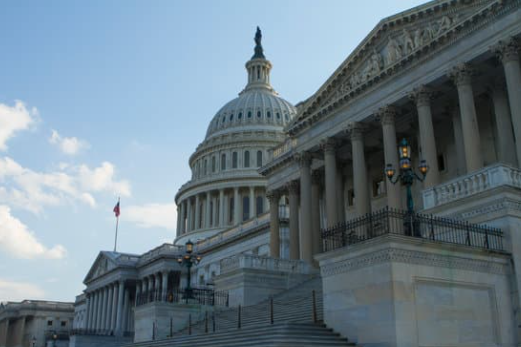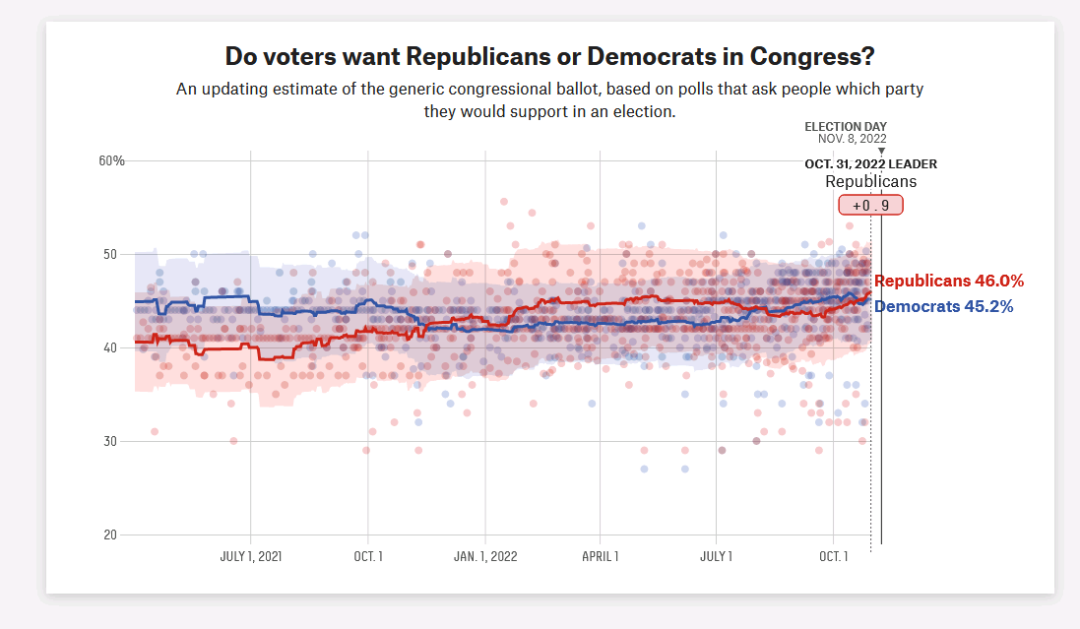This week, the United States ushered in one of the most important events of 2022 - the midterm elections. This year's election is referred to as Biden's "midterm election" and is also considered a "pre-war" for the 2024 U.S. presidential election.
In a time of high inflation, high oil prices and the threat of recession in the economy, this election is tied to the next two years in power and the market will be affected.
So how do you vote in the midterm elections? What are the key issues in this election? And what impact will it have?
What is the midterm elections?
Under the U.S. Constitution, presidential elections are held every four years and congressional elections are held every two years. Congressional elections, held in the middle of a president's term, are called "midterm elections.”
Generally, midterm elections are held on the first Tuesday in November. So this year's midterm elections will be held on Nov. 8.
Midterm elections include federal, state, and local elections. The most important election is the election of members of Congress, which is the election of seats in the House of Representatives and the Senate.

U.S. Capitol Building
The House of Representatives uses the perception of the population relative to the public and has 435 seats. Each member of the House of Representatives represents a specific constituency in their state and serves a two-year term, which means they must all be re-selected in these midterm elections.
The Senate, on the other hand, represents a balance of districts and has 100 seats. All 50 U.S. states, regardless of size, can elect two senators to represent their state.
The midterm elections have nothing to do with the presidency, but the results are linked to President Biden's governing and economic agenda for the next two years.
What is the current state of the elections?
The U.S. has a separation-of-powers political system in which the president's major policies require congressional approval. Thus, if the party in power loses control of both houses of Congress, the president's policies will be severely hampered.
For example, Democrats currently hold more seats than Republicans in both houses of Congress, but the margin between the two parties is only 12 seats - both houses of Congress are currently controlled by Democrats, although the margin is very small.
And according to the latest data from FiveThirtyEight, the Republican Party's approval rating is now higher than the Democratic Party’s; moreover, President Biden's current approval rating is lower than almost all U.S. presidents over the same period.

46% of people say they are more likely to support Republicans in elections, 45.2% are more likely to support Democrats (FiveThirtyEight)
Thus, if the current governing party loses control of either the Senate or the House in these midterm elections, the implementation of President Biden's policies will face obstacles; if both houses lose, the President who wants to introduce a bill could be constrained or even face the situation of losing power.
If the policies cannot be successfully implemented, it will also put Biden and the Democratic Party in a disadvantageous situation in the 2024 presidential election, so that the midterm elections are usually seen as the next presidential election "wind direction."
What are the implications?
According to a new poll from ABC, inflation and the economy are voters’ top concerns ahead of the midterm elections. Nearly half of Americans cited these two issues as most important in deciding how to vote.
Many believe the outcome of these midterm elections will have an impact on the Fed's policy direction, especially because controlling inflation is one of the government’s most important accomplishment at this stage.
June data show that hawkish Fed policies may increase Biden's approval rating, while dovish policies may lower the president's approval rating.
Thus, combined with the fact that inflation is still at the forefront of voters’ minds, the emphasis on fighting inflation before the midterm elections may not be “wrong.”
And in the face of inflation, while the Biden administration has emphasized that fighting inflation is a top priority, it has, on the other hand, taken various benefited inflation measures.
If these bills pass, they will likely push inflation higher, leading to further tightening of monetary policy by the Federal Reserve.
This means that interest rates will continue to rise and the end of the Fed's rate hikes will be higher.
Articles Sharing:
Will Powell become the second Volcker?
When Record-high Home Prices Meet Crazy Interest Rate Hikes
Statement:
This article was edited and compiled by AAA LENDINGS, the copyright belongs to AAA LENDINGS website, it doesn't represent the position of this website, and is not allowed to be reprinted without permission.
阅读原文 阅读 1440



